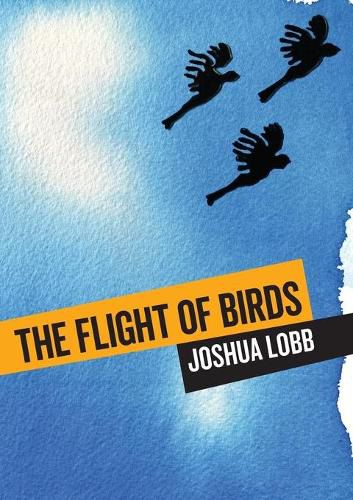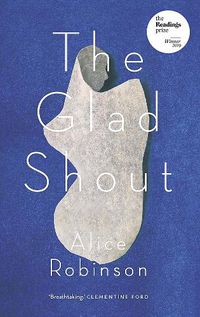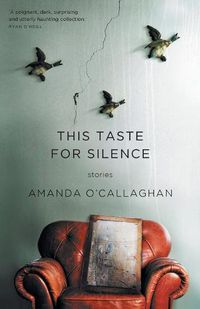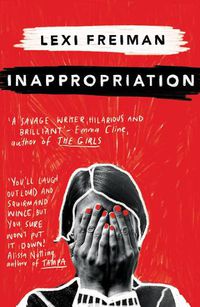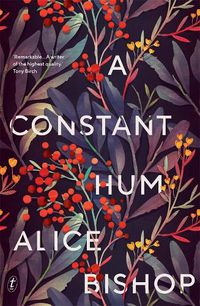Readings Prize spotlight: Q&A with Joshua Lobb
The Flight of Birds by Joshua Lobb is one of the six books shortlisted for this year’s Readings Prize for New Australian Fiction. Here, we chat with Lobb about birds, climate change and whether fiction can be political.
Congratulations on being shortlisted for the Readings Prize for New Australian Fiction! Can you tell us a little bit about your book?
Thank you for including me on the shortlist!
The writer and teacher Pip Newling plays a game with students where she says ‘what is your story about?’ - and then ‘what is it really about?’ – and then ‘what is it really really about?’. I think this is a good model for talking about my book, because it has multiple layers:
- It’s about birds: more accurately, the care and responsibility we owe to the birds who intersect with our lives.
- It’s really about grief: the kinds of helplessness we feel after someone dies and the ways we tell stories to find hope in a suddenly empty world.
- It’s really really about climate change: bringing together personal and planetary grief. I think we feel the same way about climate change as we do when we grieve: it is so overwhelming and we feel powerless. By bringing these together, I want to think about our emotional connection to the planet.
All this sounds really sad – and it is a sad book. But I think it’s also hopeful and the grief felt in the book turns to something more active and positive.
Birds are a recurring motif throughout the stories in The Flight of Birds. What is it about birds that inspires your work? How did you come to use this motif for this collection of fiction?
I think it’s the birds in the book that turn it from something despairing to something hopeful. I first started thinking about the book at a moment of despair about the planet – I was walking over a bridge, full of loud and angry traffic and underneath was a train line and a cement trough where a creek used to run. I thought ‘what the hell are we doing to the world around us?’ At that moment three black cockatoos wafted down from the open sky above me. I watched them, suspended in the air. Then, one by one, the cockatoos dropped lower, under the bridge, and flew away. They suddenly gave me a different way to think about the space around me.
I was certainly no expert on birds when I started the book and it’s been wonderful learning about so many different birds and their communities. One of the things we tend to tell writing students is ‘write what you know’, and this is definitely important. But in this book I discovered the joys of ‘writing what you don’t know’. To get to know the birds in the book, I read and thought and talked with people and learned about birds and this generated writing. This was much more gratifying than just saying ‘I’m going to write about my mother’ (which the book is also about). I’d sit down and say ‘let’s think about magpies’ and that would generate a story.
One of the outstanding things about the collection is its sense of place, and a strong theme that comes through is how climate change poses such a threat on both macro and micro levels, affecting us as individuals and a community. Was the inherent relationship between these themes always consciously in the forefront of your mind when composing your collection, or did it emerge naturally?
Yes, I think this was conscious – I thank the black cockatoos for that. The book is very explicit in the way it focuses on different interactions with birds to think through the many ways we are connected to them, as well as the different ways these encounters could help us think through our relationship with the planet.
I do think of this particular work as being actively political. But it does it in a way that asks readers to inhabit a space rather than trying to convince them in another way. I’m frightened about our world at the moment, and writing is one of the few skills I have to consider other ways of thinking about it. Deborah Bird Rose writes ‘Where one person or species’ knowledge stops, someone else’s knowledge picks up the story’. For me, stories are a place where two imaginations meet and the writer passes on an idea to the reader.
You describe the field notes included at the back of the book as ‘jottings’ and ‘quickly rendered scribbles about actions and dialogue’. Can you tell us more about your decision to include them with your book? And how much do they reveal of your writing process? As an academic and professor, was this an inclusion designed as a way to share your knowledge with students/readers?
I do like to think about how fiction works and not just write it. But I also love reading the ‘acknowledgments’ sections of novels where they talk about their sources – it gives you places to go if you want to know more (a great example of this is Catherine McKinnon’s Storyland which talks a lot about the research she undertook to be able to tell stories about the Country she’s writing about).
My stories often explicitly use a theoretical idea as the starting point – and I wanted to show how ideas can be as inspirational as experiences. The poet Antonia Pont says: ‘I might engage with viewing a sunset… I might also have that kind of engagement when I’m presented with the spectacle of an idea’. Certainly that’s true for me.
I also think it’s really important for all of us to reflect on what we do in our particular work and how whatever we do might help change how we interact with the planet. I’ve been excited to see that the students at climate change rallies are not just Science or Humanities students but students from disciplines you might not expect: finance students, or engineers, or nanotechnologists. Each student at the rallies is thinking about their future career choice might have on the planet, and the things they can do in their work to be more ecologically ethical. In the field notes, I’m following their lead: I want share with other writers how I think writing can help change our practices.
The structure of The Flight of Birds is somewhat different to both typical novels and typical short story collections. Rather, it’s a collection of short stories that contribute to one overarching narrative structure. Can you talk a bit more about that structural decision and framework, and how it came to be?
I’ve been thinking more and more about how short stories might be a way to think about ‘big things’ like climate change. Elizabeth Bowen says that ‘the short story… [places its character] alone on that stage which, inwardly, every [hu]man is conscious of occupying’. While I think the concept of a ‘universal’ truth is problematic, I think it’s important that short stories set up a small event that mirrors a broader problem. The English writer Sara Maitland writes a beautiful story called ‘The Moss Witch’ which has a really small encounter between one human and a place but you come through the story thinking about your encounters with all spaces. I want to write stories like that, or like the ones by Alice Munro or ‘The Kiss’ by Peter Goldsworthy (or ‘The Kiss’ by Chekhov, for that matter…).
But I also think that novels have something to contribute here. Raymond Williams says that the novel ‘offers a valuing of a whole way of life, a society that is larger than any of the individuals composing it’. Of course, he was writing about the nineteenth-century novel and we’ve been through a whole century of fragmentation, dislocation and isolation. The novelists of the twentieth century make declarations like ‘human beings are so divided, are becoming more and more divided, and more subdivided in themselves [because they are] reflecting the world’ (That’s Doris Lessing in The Golden Notebook). I think it’s time we go back to the novel as a coherent force. The crucial words of where we are right here, right now are not ‘fragmentation’ or ‘isolation but ‘entanglement’ or maybe even ‘complicity’.
So I think the structure of the book comes from a desire to use the big/small of the short story and the coherence of the novel – to allow for individual moments and also make connections between them.
What books and/or writers did you read while you were writing The Flight of Birds? What books and/or writers are currently in your to-be-read (TBR) pile?
I did a lot of scientific reading for the book as well as more broad academic reading. The writing of Deborah Bird Rose established an ethical framework for me. In terms of fiction, both Catherine McKinnon’s Storyland and Melissa Lucashenko’s Mullumbimby were crucial texts that offered me different ways to think about space and place. Similarly, Evie Wyld’s All the Birds, Singing and Alexis Wright’s The Swan Book provoked me to think about the implications of representing birds (both books do much more than that, but their engagement with birds inspired me). There’s also a beautiful small story by Margaret Atwood called ‘Scarlet Ibis’ which essentially says ‘the birds don’t even notice us’, which helped. Elizabeth Strout’s Olive Kitteridge appeared to me on a long bus ride and said ‘here’s how you can make connections between stories’. I always have to acknowledge A. S. Byatt and the ways she shows how ideas and story can work together; more recently, the less well-known Sara Maitland has taught me some more lessons on this.
I have a ridiculously huge pile of books beside the bed. I have just finished The Overstory by Richard Powers, which is doing everything I wanted to do in my book – finding connections between big and small, intertwining stories, offering new ways to think about the planet – but a million times better. I usually have an Ali Smith book on the table: at the moment it is Winter. And I’m looking forward to reading Amitav Ghosh’s Gun Island – his non-fiction book The Great Derangement was another lynchpin text for The Flight of Birds.
And there’s always a Tintin comic or an Agatha Christie of some sort or other, saying ‘please re-read me!’



